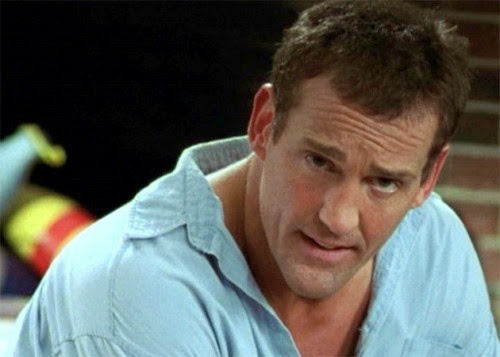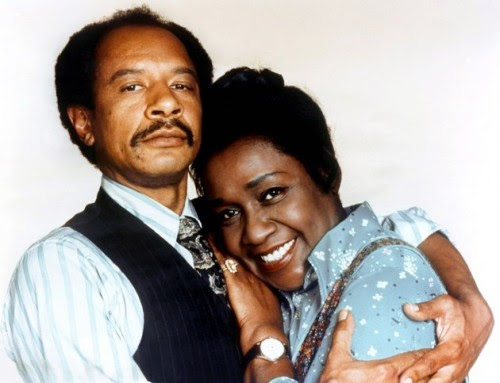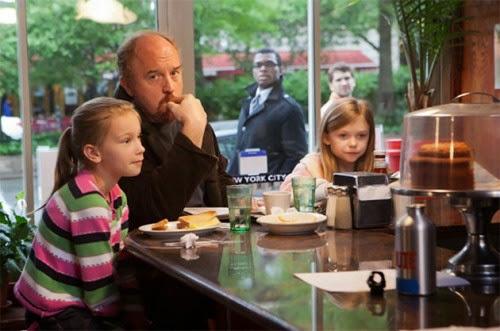By Derrik J. Lang, The Associated Press - The Canadian Press
 LOS ANGELES, Calif. - Game makers at this year's Electronic Entertainment Expo went for the jugular.
LOS ANGELES, Calif. - Game makers at this year's Electronic Entertainment Expo went for the jugular.
That's not just a metaphor about the competitive spirit of the video game industry at its annual trade show this past week. There were also actual depictions of throats being ripped out — as well as spleens, spines, hearts and testicles — in some of the goriest scenes ever shown off at E3.
Developers of such titles as "Bloodborne," "Let It Die," "Mortal Kombat X," "Dead Island 2" and "Dying Light" weren't shy about harnessing the high-powered graphical capabilities of the latest generation of consoles to portray more realistic decapitations, dismemberments and other grisliness.
Why the apparent boost in high-definition gross-outs?
"I think in the early years of a console launch, you have the so-called early adopters and hardcore fan base," said Shawn Layden, CEO of Sony Computer Entertainment America, which launched the PlayStation 4 last November. "I think they look for the latest gaming experience that takes them to another level from where they've been before, and a lot of our publishing partners are pursuing the new, most impactful experience for gamers."
The parade of carnage kicked off Monday at Microsoft's presentation when the creators of "Call of Duty: Advanced Warfare" demonstrated a level in which a character's arm is ripped off while attempting to sabotage an enemy aircraft in South Korea. Michael Condrey, co-founder of "Advanced Warfare" developer Sledgehammer Games, later maintained the amputation wasn't only intended to shock.
"We know that war is terrifying," said Condrey. "The military advisers that we work with talk about the horrors of war. 'Call of Duty' isn't just about gratuitous violence. The scene that you saw in Seoul at the Microsoft press conference, that's an impactful story moment. The loss of the arm is really part of the narrative. We showed that for a particular storytelling reason."
Other slaughter on display at E3 included a first-person perspective of a decapitation in a demo of the French Revolution-set "Assassin's Creed: Unity" and several bone-crushing new moves in "Mortal Kombat X," like extreme close-ups of characters snapping their opponents' spines and manhandling their genitals.
"It seems, as time goes on, video games continue to become more violent, realistic and graphic," said Brad J. Bushman, a communication and psychology professor at Ohio State University. "This is a disturbing trend. Unfortunately, I see no signs that it will stop. The research evidence clearly indicates that violent video games increase aggression in players, and can make them numb to the pain and suffering of others."
But it wasn't merely blood and guts on display at E3 this year. The virtual horse that players will mount in the open-world action sequel "Metal Gear Solid V: The Phantom Pain" has been programmed to spontaneously defecate. And in a creepy abandoned mental institution from the Victorian-era thriller "The Order: 1886," there's not just blood smeared across the walls.
Game makers defend that gore aids the narrative, yet many believe a little goes a long way.
"For us, it's more impactful if it's done tastefully," said "The Order" game director Dana Jan. "If you just throw blood all over the place, it's meaningless. ... We have to look at what we think is disturbing or scary and figure out how to do that masterfully without going too over the top."
E3 wasn't completely consumed with bloodshed. This year's show featured a plethora of non-bloody, artsy games that attracted an unprecedented amount of attention. Still, the biggest games at E3 are usually the most hardcore
While violence has long been part of gaming history, and these gory titles are destined to be restricted to adult buyers by the industry's rating board, such footage received visceral reactions from even the most seasoned gamers this year.
"E3 2014, taken as a whole, doesn't feel as obsessed with violence as past shows," wrote Chris Plante, co-founder at the gaming site Polygon. That was before he cut the show's most graphic violence into a one-minute video. "The supercut is dense with blood, organs and unrecognizable viscera," Plante wrote. "It's strange how these things can wash over you but make an impact when taken together. These conferences can be a bit desensitizing."
AP Entertainment Writer Ryan Pearson contributed to this report.
Follow AP Entertainment Writer Derrik J. Lang on Twitter at https://www.twitter.com/derrikjlang.

That's not just a metaphor about the competitive spirit of the video game industry at its annual trade show this past week. There were also actual depictions of throats being ripped out — as well as spleens, spines, hearts and testicles — in some of the goriest scenes ever shown off at E3.
Developers of such titles as "Bloodborne," "Let It Die," "Mortal Kombat X," "Dead Island 2" and "Dying Light" weren't shy about harnessing the high-powered graphical capabilities of the latest generation of consoles to portray more realistic decapitations, dismemberments and other grisliness.
Why the apparent boost in high-definition gross-outs?
"I think in the early years of a console launch, you have the so-called early adopters and hardcore fan base," said Shawn Layden, CEO of Sony Computer Entertainment America, which launched the PlayStation 4 last November. "I think they look for the latest gaming experience that takes them to another level from where they've been before, and a lot of our publishing partners are pursuing the new, most impactful experience for gamers."
The parade of carnage kicked off Monday at Microsoft's presentation when the creators of "Call of Duty: Advanced Warfare" demonstrated a level in which a character's arm is ripped off while attempting to sabotage an enemy aircraft in South Korea. Michael Condrey, co-founder of "Advanced Warfare" developer Sledgehammer Games, later maintained the amputation wasn't only intended to shock.
"We know that war is terrifying," said Condrey. "The military advisers that we work with talk about the horrors of war. 'Call of Duty' isn't just about gratuitous violence. The scene that you saw in Seoul at the Microsoft press conference, that's an impactful story moment. The loss of the arm is really part of the narrative. We showed that for a particular storytelling reason."
Other slaughter on display at E3 included a first-person perspective of a decapitation in a demo of the French Revolution-set "Assassin's Creed: Unity" and several bone-crushing new moves in "Mortal Kombat X," like extreme close-ups of characters snapping their opponents' spines and manhandling their genitals.
"It seems, as time goes on, video games continue to become more violent, realistic and graphic," said Brad J. Bushman, a communication and psychology professor at Ohio State University. "This is a disturbing trend. Unfortunately, I see no signs that it will stop. The research evidence clearly indicates that violent video games increase aggression in players, and can make them numb to the pain and suffering of others."
But it wasn't merely blood and guts on display at E3 this year. The virtual horse that players will mount in the open-world action sequel "Metal Gear Solid V: The Phantom Pain" has been programmed to spontaneously defecate. And in a creepy abandoned mental institution from the Victorian-era thriller "The Order: 1886," there's not just blood smeared across the walls.
Game makers defend that gore aids the narrative, yet many believe a little goes a long way.
"For us, it's more impactful if it's done tastefully," said "The Order" game director Dana Jan. "If you just throw blood all over the place, it's meaningless. ... We have to look at what we think is disturbing or scary and figure out how to do that masterfully without going too over the top."
E3 wasn't completely consumed with bloodshed. This year's show featured a plethora of non-bloody, artsy games that attracted an unprecedented amount of attention. Still, the biggest games at E3 are usually the most hardcore
While violence has long been part of gaming history, and these gory titles are destined to be restricted to adult buyers by the industry's rating board, such footage received visceral reactions from even the most seasoned gamers this year.
"E3 2014, taken as a whole, doesn't feel as obsessed with violence as past shows," wrote Chris Plante, co-founder at the gaming site Polygon. That was before he cut the show's most graphic violence into a one-minute video. "The supercut is dense with blood, organs and unrecognizable viscera," Plante wrote. "It's strange how these things can wash over you but make an impact when taken together. These conferences can be a bit desensitizing."
AP Entertainment Writer Ryan Pearson contributed to this report.
Follow AP Entertainment Writer Derrik J. Lang on Twitter at https://www.twitter.com/derrikjlang.











































